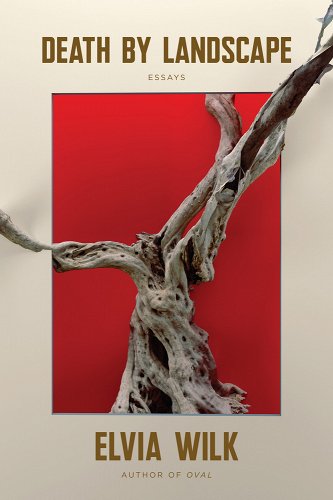sol2070 reviewed Death by Landscape by Elvia Wilk
Fiction in the age of extinction
4 stars
(em português → sol2070.in/2024/07/death-by-landscape-elvia-wilk-ficcao-era-da-extincao/ )
"Death by Landscape" (2022) brings together essays by New York-based author and novelist Elvia Wilk. Most of them are about one of my favourite themes in speculative fiction, the merging of people with their environment. The description on the back cover adds: ‘a book of “fan nonfiction” about living and writing in the age of extinction’.
There are two or three essays at the end, out of a total of 13, that I skipped -- for example, one on virtual reality and a chronicle of isolation during Covid. But I loved the rest.
The book's title is the same as a short story by Margaret Atwood, famous for "The Handmaid's Tale". In this story, a girl inexplicably disappears in a forest grove. Over the years, her best friend becomes increasingly haunted by signs that the missing girl has merged in an extraordinary way with the forest landscape. This is the theme of many of the essays. The interdependence between humans and nature is a primordial fact that is not new, but is often overlooked. In recent decades, the theme has become increasingly relevant in the cultural imagination, due to the era of environmental collapse that we are entering. As we are inseparably integrated with nature, the catastrophe is also the great human collapse.
The presence of this theme at the forefront of speculative fiction is a sign of this crucial transition in the stories we tell.
The articles alternate between literary and film criticism, autobiographical reminiscences and even hagiographic analysis (hagiography is the biography of mystics). I especially liked it because many of the books and films analysed -- most of them science fiction -- are among my all-time favourites.
I love Jeff Vandermeer's novel "Annihilation" and I thought the author's essay on the work was brilliant. The connection between mystical experiences and science fiction is that visions of what used to be called God, spirit, etc., are nothing more than revelations of the unknown, the deep mystery of reality. One of the author's specialities is the lives of medieval women visionaries. For example, the Englishwoman Juliana of Norwich, the first woman credited as the author of a book: "Revelations on Divine Love", from the 14th century. She confined herself in a cell and had full contact with an extraordinary reality that she identified as the Christian deities (I also have this book, which I consider to be highly psychedelic literature).
Christian vocabulary was the only thing that people immersed in this kind of culture had to describe ‘first contact experiences’, as the author says. Essentially, it's not so different from the phenomenon of the "Annihilation" story, or legends of natural ‘paganism’.
Elvia Wilk has also written a highly praised sci-fi dystopian novel (which I haven't read): "Oval" (2019).

